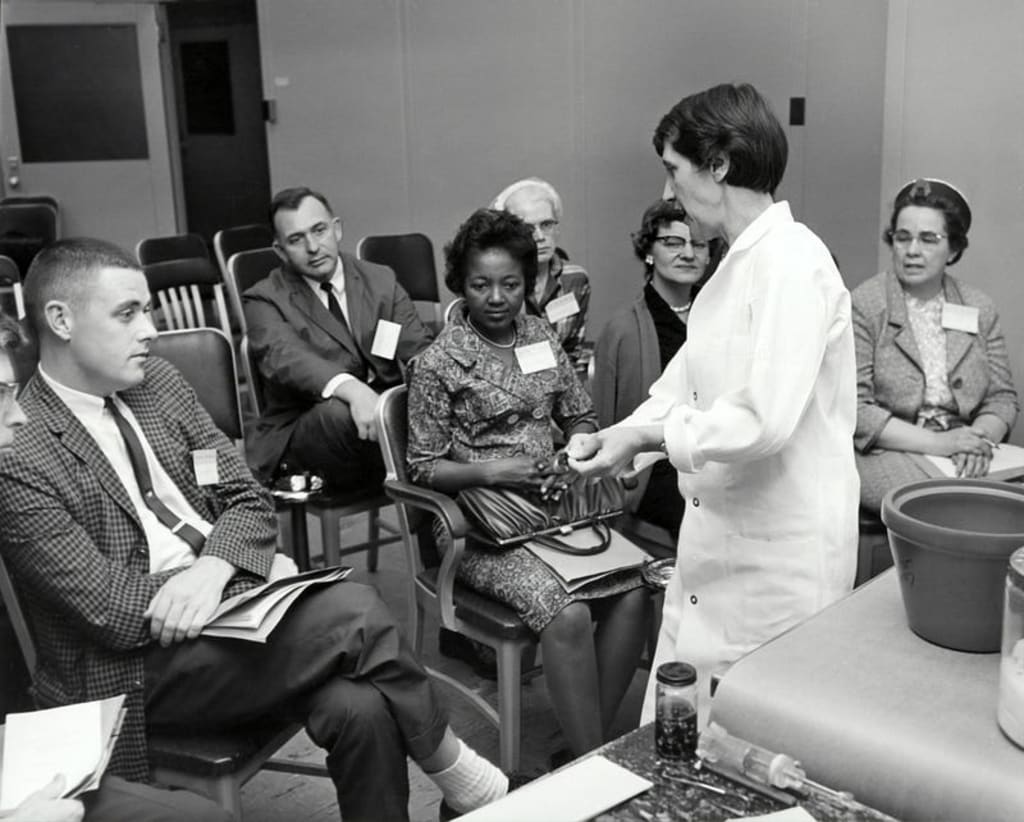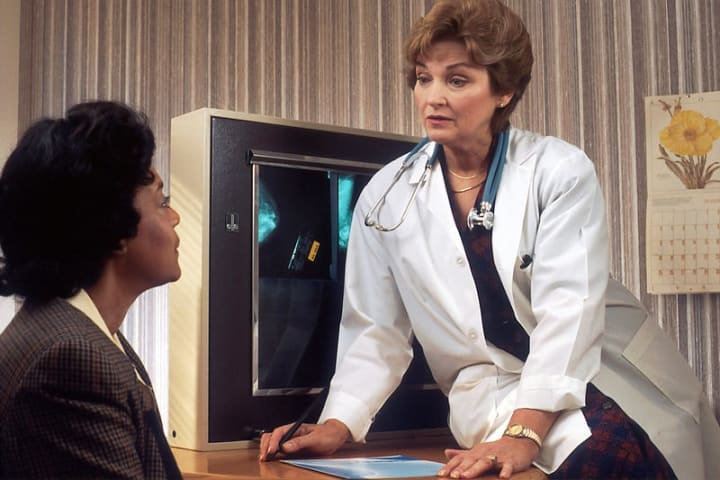Understanding Cardiovascular Disease: Causes & Prevention
They are big health threats, causing many deaths yearly. Knowing the causes, risks, and how to prevent them is key to fighting these diseases.

Cardiovascular disease includes many heart and blood vessel conditions. These can lead to heart attacks, strokes, and more.
This article will cover everything about cardiovascular disease. We'll talk about what it is, its types, risks, symptoms, and new ways to diagnose and treat it. We want to help you keep your heart healthy and lower your risk of these serious problems.
Facts
- Cardiovascular disease includes many heart and blood vessel issues, like heart attacks and strokes.
- Knowing the risks, such as high blood pressure and high cholesterol, helps prevent it.
- Spotting signs like chest pain and shortness of breath means you can get help fast.
- Living a healthy life, eating right, exercising, and managing stress can lower your risk.
- New tests and treatments have made managing heart conditions better.
What is Cardiovascular Disease?
Cardiovascular disease is a term that covers many heart and blood vessel issues. It includes things like coronary artery disease, arrhythmias, and congestive heart failure. These problems can really affect a person's health and happiness.
Definition and Overview
Cardiovascular disease means any issue with the heart or blood vessels. It can be about blocked or restricted blood flow. Or it could be problems with the heart's rhythm or pumping ability. Knowing about heart disease and heart conditions helps keep your heart healthy and avoid problems.
Types of Cardiovascular Diseases
Some common cardiovascular diseases are:
- Coronary artery disease: This is when plaque builds up in the arteries that bring blood and oxygen to the heart.
- Arrhythmias: These are when your heart beats too fast, too slow, or in a weird way.
- Congestive heart failure: This is when your heart can't pump blood well all over your body.
- Valvular heart disease: This is when the heart valves don't open and close right.
- Peripheral artery disease: This is when the arteries to your legs and arms get narrow or blocked.
Knowing about the different heart problems and heart conditions under cardiovascular disease helps you take good care of your heart.
Risk Factors for Cardiovascular Disease
Cardiovascular disease is a big health worry. Knowing the risk factors helps in preventing and treating it early. We'll look at lifestyle choices and genetic factors that affect heart health.
High blood pressure is a big risk. It can harm blood vessels and make the heart work too hard. High cholesterol can also be a problem. It makes arteries narrow, which can lead to heart attacks or strokes.
Being overweight and having diabetes are also risks. Being too heavy and not using insulin right can cause inflammation and high blood pressure. Smoking is another risk that people can change. It damages blood vessels and raises the chance of blood clots.
"Addressing these risk factors through lifestyle changes and medical interventions can greatly improve cardiovascular health and reduce the burden of heart disease."
Some risks you can't change, like your age, gender, and family history. Getting older and some genes make heart disease more likely.
Knowing these risks helps people take care of their health. They can make better choices and work with doctors to lower risks. This keeps their hearts healthy.
Symptoms of Cardiovascular Disease
Knowing the signs of cardiovascular disease is key. It helps catch problems early. Signs like chest pain or shortness of breath mean you should get help fast.
Warning Signs of a Heart Attack
Heart attack symptoms include chest pain or discomfort, shortness of breath, and irregular heartbeat. You might also feel nausea, cold sweats, or pain in the jaw, neck, or arms. These signs can be mild or severe and may come and go.
Identifying Stroke Symptoms
Strokes happen suddenly. Watch for sudden numbness or weakness in the face, arm, or leg, especially on one side of the body. Confusion, trouble speaking or understanding speech, and sudden vision loss are also signs. Getting help right away is very important.
Noticing cardiovascular disease symptoms, heart attack symptoms, and stroke symptoms can save lives. If you see any of these signs, don't wait to get medical help.
"The sooner a heart attack or stroke is treated, the better the chance of recovery."
Causes of Cardiovascular Disease
Cardiovascular disease has many causes. High blood pressure (hypertension) and high cholesterol levels are big reasons. These can make atherosclerosis, a bad buildup in arteries, happen. This is a main cause of many heart problems.

The Role of Hypertension
High blood pressure is hard on the heart and blood vessels. It can hurt the arteries' lining over time. This leads to inflammation and fatty deposits, or plaque.
As plaque grows, it makes arteries smaller. This cuts down blood flow. It raises the risk of heart attack, stroke, and other heart issues.
Cholesterol and Atherosclerosis
High cholesterol is also a big problem. Too much "bad" LDL cholesterol can stick to artery walls. This makes plaque and leads to atherosclerosis.
This plaque buildup can block blood flow. It can cause a heart attack or stroke.
"Controlling high blood pressure and high cholesterol levels is crucial in preventing the progression of cardiovascular disease."
Knowing what causes cardiovascular disease helps people take steps to stay healthy. Regular check-ups and making healthy changes can help. Sometimes, doctors may need to step in to help too.
Cardiovascular Disease and Lifestyle Factors
Cardiovascular disease is a big health worry. But, many risk factors can be controlled by lifestyle changes. Eating well and moving often can lower the chance of heart problems.
Importance of a Healthy Diet
Eating right is key for a healthy heart. Foods full of fiber, like fruits and veggies, help lower bad cholesterol. Adding lean proteins, good fats, and low-sodium foods is also good for your heart.
Exercise and Physical Activity
Staying active is vital for heart health and managing weight. Walking fast, swimming, and biking can make your heart stronger. They also help your blood flow better and lower the risk of heart and stroke.
Try to do at least 150 minutes of moderate exercise or 75 minutes of hard exercise each week. This is best for your heart.
"Embracing a healthy lifestyle can go a long way in protecting your heart and reducing the risk of cardiovascular disease."
Choosing wisely with diet and exercise can help keep your heart healthy. Adding these habits to your daily life can greatly improve your heart health over time.
Diagnosing Cardiovascular Disease
It's very important to correctly diagnose cardiovascular disease. Doctors use many tools and tests to check your heart health. They look at physical exams, blood tests, imaging tests, and special heart tests.
A physical examination is the first step. Doctors check for signs like weird heartbeats, strange heart sounds, and swelling. They also check your blood pressure and watch your vital signs.
Blood tests give more clues about your heart health. They check your cholesterol and other things that show heart disease.
Imaging tests like ECGs, echocardiograms, and stress tests show how your heart works. They can find blocked arteries, heart muscle damage, and weird heart rhythms.
For a deeper look, doctors might use specialized cardiac tests. These include angiograms, cardiac catheterizations, or CT scans. These tests show the heart and blood vessels in detail.
Doctors use these tests together to find and check cardiovascular disease. This helps them make treatment plans just for you.
"Early detection and diagnosis of cardiovascular disease is crucial for effective management and improved patient outcomes."
Treatment Options for Cardiovascular Disease
Healthcare providers have many ways to treat cardiovascular disease. The right treatment depends on how bad the disease is and its type. They use medicines, therapies, and surgery to help patients.
Medications and Therapies
Medicines are a big part of treating heart disease. Doctors might give you anticoagulants, antiplatelets, statins, or antihypertensive drugs. These help lower blood pressure and keep cholesterol and blood clots in check.
There are also therapies like cardiac rehabilitation, lifestyle modification programs, and device-based therapies. These help make your heart healthier and lower the risk of future problems.
Surgical Interventions
For very serious heart disease, surgery might be needed. This includes heart surgery, angioplasty, and bypass surgery. These surgeries fix things like blocked arteries or damaged heart valves to make the heart work better.
Choosing the right treatment for heart disease is a team effort. The patient and their doctors look at what's best for them. By looking at all the options, patients can find the best way to manage their heart condition.
Preventing Cardiovascular Disease
Cardiovascular disease is a big health worry, but it can be stopped. By changing our ways and handling risk factors, we can cut down our chance of getting heart disease or having a heart attack or stroke. Let's look at how to stop cardiovascular disease.
Modifying Risk Factors
The first step is to find and fix the risk factors that lead to heart disease. Important ones include high blood pressure, high cholesterol, diabetes, and smoking. By managing these, we can lower our risk of heart disease.
- Keep your blood pressure healthy with diet, exercise, and meds if needed.
- Keep your cholesterol in check by eating right and taking meds if necessary.
- Control diabetes with diet, exercise, and meds.
- Stop smoking and stay away from secondhand smoke.
Lifestyle Changes for Prevention
Healthy habits can also help prevent heart disease. These heart healthy habits include:
- Eat a nutritious, plant-based diet full of fruits, veggies, whole grains, and lean meats.
- Do regular physical activity for at least 150 minutes a week.
- Keep a healthy body weight with a balanced diet and exercise.
- Lower stress with stress management techniques like meditation or yoga.
- Get enough quality sleep every night.
By changing our lives this way, we can greatly reduce our risk of cardiovascular disease. This means better health and happiness for us.
"An ounce of prevention is worth a pound of cure." - Benjamin Franklin
Conclusion
We looked closely at cardiovascular disease in this article. We talked about what causes it and how to prevent it. A healthy lifestyle is key to keeping your heart safe.
Managing high blood pressure and keeping an eye on cholesterol is important. So is staying active and eating right. This article gives you tips to help you make good choices for your heart.
By tackling the main causes of heart disease, you can help prevent it. This means a healthier future for everyone. It's not the same for everyone, though. What works for one person might not work for another.
But, by paying attention to your health, making changes, and seeing your doctor regularly, you can lower your risk. This leads to a happier, healthier life.
FAQ
What is cardiovascular disease?
Cardiovascular disease is a group of conditions that affect the heart and blood vessels. This includes things like coronary artery disease, arrhythmias, and congestive heart failure.
What are the risk factors for cardiovascular disease?
Risk factors you can change include your diet, how active you are, and your lifestyle. Things you can't change include your age, gender, and family history.
What are the symptoms of cardiovascular disease?
Symptoms include chest pain, shortness of breath, and an irregular heartbeat. You should watch for signs of a heart attack and stroke too.
What causes cardiovascular disease?
It's often caused by high blood pressure and high cholesterol. These can make plaque build up in your arteries.
How can I prevent cardiovascular disease?
You can lower your risk by eating well, staying active, managing your weight, and quitting smoking.
How is cardiovascular disease diagnosed?
Doctors use tests like physical exams, blood tests, and imaging tests to find cardiovascular disease.
What are the treatment options for cardiovascular disease?
Treatments include medicines, therapies, and surgery. The choice depends on how serious and what type of condition you have.
How does lifestyle affect cardiovascular health?
Eating right and exercising regularly are key to preventing and managing heart disease.
What is the connection between hypertension and cardiovascular disease?
High blood pressure is a big risk factor for heart disease. It can cause atherosclerosis and other heart problems.
How does cholesterol contribute to cardiovascular disease?
Too much LDL cholesterol can make plaque build up in your arteries. This is called atherosclerosis and is a main cause of heart disease.





Comments (1)
Jason it was brilliant.